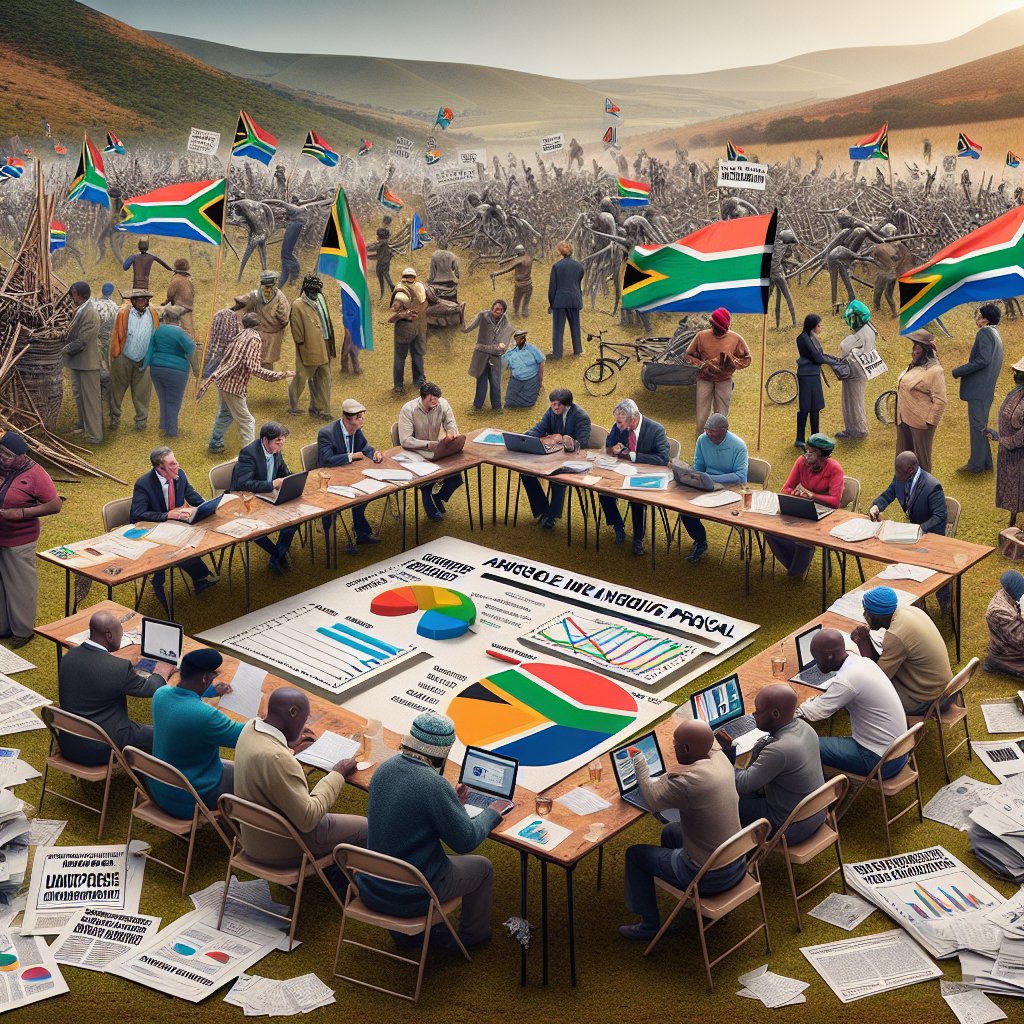Content created by AI
SARA Introduces Groundbreaking Policy for 'Unemployed Single Men' Ahead of South African General Elections
In the bustling political landscape of South Africa, where the winds of change are as constant as the rolling hills of its vast lands, the SA Rainbow Alliance (SARA) has emerged with a striking proposal that has captured the public's attention. As the nation stands on the precipice of one of its most consequential general elections since the historical 1994 vote which ended apartheid, SARA is showing that it is not afraid to break the mold with its policy offerings.
The new kid on the political block, SARA is reaching out to a segment of the population often overlooked in policy-making: unemployed single men. The group's latest policy proposal – a special grant for this demographic – has been framed as a tool to catalyze a significant turn in the nation's social and economic journey. This move challenges the traditional political narrative that has predominantly focused on broad-based welfare policies, signaling SARA's intent to address specific societal issues with targeted solutions.
What makes SARA's proposition especially captivating is the focus on single men, a group that historically has not been the primary recipient of social grants. The special grant aims to provide immediate relief to those who find themselves without employment, a condition exacerbated by South Africa's long-standing issues with job scarcity and economic inequality.
SARA's proposal also highlights the understanding that unemployment extends well beyond mere economics; it affects the social fabric of communities and individuals' mental and physical well-being. By potentially boosting the purchasing power of these men, the policy could have a ripple effect, easing the strain on impoverished communities, boosting local economies, and reducing crime rates often linked to economic desperation.
Yet the path to enacting such a policy is fraught with challenges. There are concerns about identifying the appropriate funding sources, managing the distribution efficiently, and ensuring that the support provided leads to sustainable outcomes rather than dependency. However, SARA leaders have expressed confidence in their ability to craft and execute a practical plan that ensures that the grant is both beneficial and sustainable.
In their broader policy platform, SARA has promised a number of other transformative ideas, each aimed at propelling South Africa towards a more equitable and prosperous future. Voters are paying close attention, evaluating the practicality and impact of these proposals on their lives and on the country as a whole.
As SARA steps onto the national stage, their policy vision, including this targeted grant, is a significant departure from the status quo. South Africans are showing that they are ready for innovative and bold solutions in their governance, and SARA is positioning itself to potentially lead this change. The grant proposal's progress and ultimate fate will be indicative of the political tides in the country and will serve as a litmus test for SARA's influence in the evolving South African political landscape.
In the coming weeks, rigorous public and political discourse is expected as the grant and other policies proposed by SARA are dissected and debated. With the general election looming, SARA's daring promises are set to leave an indelible mark on the public consciousness and may just redefine the role of policy in building a new South Africa.
As South Africans from all corners of the nation prepare to cast their ballots, it is clear that change is not merely on the horizon—it is at their fingertips. With SARA's emergence and its focus on 'unemployed single men,' South African politics may witness a profound shift, underscored by a drive towards more nuanced and inclusive approaches to social-welfare policy.










